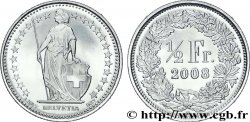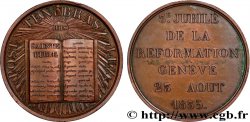Live auction - fme_994488 - SVIZZERA Médaille pour les 300 ans de la Réforme
Devi Sign-in ed essere un offerente approvato fare un'offerta, Login per fare offerte. Conti sono soggetti ad approvazione e di approvazione sono raggiunti entro 48 ore. Non aspettare fino al giorno di una vendita si chiude per registrarti.Confermando la tua offerta su questo oggetto ti impegni ad un contratto legalmente vincolante per l'acquisto di questo prodotto e fare clic su «offerta» costituisce accettazione dei termini di utilizzo de live auctions cgb.fr.
Offerta deve essere collocato in euro gli importi interi vendita only.The si chiuderà al momento sulla descrizione dell'oggetto, eventuali offerte pervenute al sito dopo l'orario di chiusura non verranno eseguite. Volte transmition possono variare e le offerte potrebbero essere respinto se si attende per gli ultimi secondi. Per ulteriori informazioni ckeck le FAQ Live auction.
Le offerte vincenti saranno sottomesse ai 18% per spese di compartecipazione alla vendita.
Le offerte vincenti saranno sottomesse ai 18% per spese di compartecipazione alla vendita.
| Valutazione : | 40 € |
| Prezzo : | 20 € |
| Offerta maxima : | 20 € |
| Data di fine vendita : | 01 aprile 2025 17:57:24 |
| partecipanti : | 1 partecipanto |
Tipo : Médaille pour les 300 ans de la Réforme
Data: 1835
Nome della officina / città: Suisse, Genève
Metallo : rame
Diametro : 33,5 mm
Asse di coniazione : 12 h.
Peso : 18,15 g.
Orlo : lisse
Marchio : sans poinçon
Commenti sullo stato di conservazione:
Médaille nettoyée. Présence de coups et rayures
Diritto
Titolatura diritto : POST TENEBRAS LUX.
Descrittivo diritto : Bible ouverte.
Rovescio
Titolatura rovescio : 3E JUBILÉ / DE LA / RÉFORMATION / GENÈVE / 25 AOÛT / 1835.
Descrittivo rovescio : Légende en 6 lignes horizontales.
Commento
La réforme protestante, également appelée « la Réforme », amorcée au XVIe siècle, est une volonté d'un retour aux sources du christianisme et aussi, par extension, un besoin de considérer la religion et la vie sociale d'une autre manière. Elle reflète l'angoisse des âmes, par la question du salut, centrale dans la réflexion des réformateurs, qui dénoncent la corruption de toute la société engendrée par le commerce des indulgences. Les réformateurs profitent de l'essor de l'imprimerie pour faire circuler la Bible en langues vulgaires (notamment l'allemand après la première traduction réalisée par Martin Luther), et montrent qu'elle ne fait mention ni des saints, ni du culte de la Vierge, ni du Purgatoire. La référence à la Bible comme norme est une des principales motivations des réformateurs..
The Protestant Reformation, also called \\\"the Reformation,\\\" which began in the 16th century, was a desire to return to the roots of Christianity and, by extension, a need to consider religion and social life in a different way. It reflected the anguish of souls, through the question of salvation, central to the reflections of the reformers, who denounced the corruption of all society engendered by the trade in indulgences. The reformers took advantage of the rise of printing to circulate the Bible in vernacular languages (notably German after the first translation by Martin Luther), and showed that it made no mention of saints, the cult of the Virgin, or Purgatory. The reference to the Bible as a standard was one of the main motivations of the reformers.
The Protestant Reformation, also called \\\"the Reformation,\\\" which began in the 16th century, was a desire to return to the roots of Christianity and, by extension, a need to consider religion and social life in a different way. It reflected the anguish of souls, through the question of salvation, central to the reflections of the reformers, who denounced the corruption of all society engendered by the trade in indulgences. The reformers took advantage of the rise of printing to circulate the Bible in vernacular languages (notably German after the first translation by Martin Luther), and showed that it made no mention of saints, the cult of the Virgin, or Purgatory. The reference to the Bible as a standard was one of the main motivations of the reformers.








 Segnalare un errore
Segnalare un errore Stampate la pagina
Stampate la pagina Condividi mia selezione
Condividi mia selezione Fai una domanda
Fai una domanda Consegnare / vendere
Consegnare / vendere
 Descrittivo
Descrittivo










